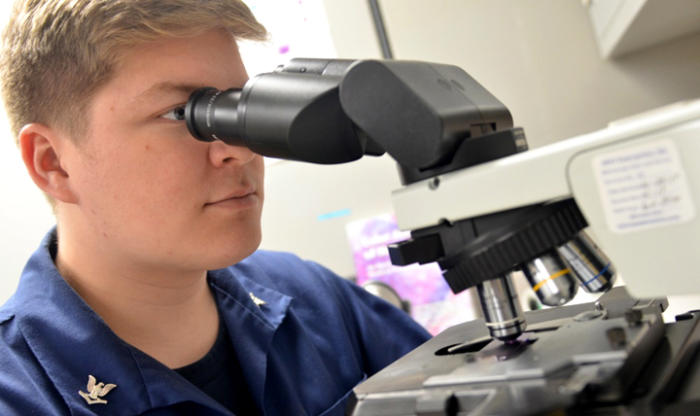Gastroenterology training currently takes 5 years from the start of training as a speciality registrar (StR) to obtaining a Certificate of completion of training. During these 5 years, an StR would expect to acquire skills in diagnostic endoscopy and managing general gastroenterology inpatients and outpatients. In addition, there is a General Internal Medicine (GIM) component which has an acute on-call commitment, although the intensity of this varies dependent on the trust. Although StR training is longer than core medical training and the foundation programme combined, it is still a relatively short period of time in the context of a medical career. Gastroenterology is a broad speciality with many fascinating sub-specialities, many of which cannot be fully explored in the 5-year registrar training programme.
OOP opportunities in gastroenterology are varied. Examples include research, teaching, leadership, advanced endoscopy, transplant hepatology and sub-specialty inflammatory bowel disease. OOP opportunities are often available within a trainee’s current region but also elsewhere in the country or outside the UK. The posts vary in length from several months to several years, with the maximum generally being 3 years. Different regulations govern research (OOP-R), approved training posts (OOP-T), experience (OOP-E) or roles unrelated to medicine (OOP-C))[1]. In most cases OOP does not count towards gastroenterology training time, therefore the date of a trainee’s certificate of completion of training will be delayed unless it is agreed before an OOP period that it will be counted (in whole or part). Funding varies significantly between types of OOP. Research is often funded by competitive grant applications (eg, to NIHR or Guts UK), whereas other fellowships are often funded internally by the employing trust in exchange for service provision [2].

Reasons for undertaking OOP
Trainees completing their gastroenterology StR post at the time of writing can expect to be a consultant for almost 30 years. Therefore additional skills (eg management) will provide important variety in consultant job plans. Although opportunities exist as a consultant to develop sub-speciality interests and additional skills, OOP is a great way to do so before embarking on a consultant career and permits their incorporation into initial job plans [3]. Furthermore, research exposure enhances the way StRs interpret evidence, having a positive impact on clinical training. Although there are currently more gastroenterology consultant posts than trainees (54% of consultant posts went unfilled in 2017/18 [4]), OOP provides an opportunity to develop sub-specialist skills, that make a trainee a more competitive applicant [5].
Identifying appropriate opportunities
Finding the right OOP requires careful consideration. The approach should be based upon the type of consultant role that a trainee would eventually like to fulfil, for example an advanced endoscopy post will need a different OOP to a transplant hepatologist. Trainees’ personal circumstances are significant; for instance, those with a young family might find pursuing OOP abroad difficult. Trainees should also consider the timing of their OOP within the 5-year registrar training programme, including developing skills needed before undertaking an OOP (eg basic endoscopy prior to an advanced fellowship) and being satisfied that there is enough remaining training time after the OOP period to re-familiarise with clinical gastroenterology before becoming a consultant. Discussing career plans widely with consultants and considering the mentorship and research champions programmes offered by the BSG [6,7] will also assist trainees in making informed decisions. Finding the right OOP supervisor is another important aspect, as a good supervisor is key to a trainee achieving their goals.
After deciding on the type of OOP required, discussion with consultants in that sub-speciality should be an early priority. Many will have contacts or be aware of specific opportunities. Many sub-specialities also have society websites (eg, British Association for the Study of the Liver [https://www.basl.org.uk/index.cfm/content/page/cid/9], Faculty of Medical Leadership and Management [https://www.fmlm.ac.uk/programme-services/individual-support/national-medical-directors-clinical-fellow-scheme] and the British Association for Parenteral & Enteral Nutrition [https://www.bapen.org.uk]) where posts may be advertised. Advanced training posts are also available, which are highly regarded. Networking might help to find an appropriate OOP, as some posts are bespoke or advertised predominantly by word of mouth. Although application is not geographically restricted, many posts are only advertised locally and are not listed on websites. Attendance and presentations at national meetings provide opportunities to meet potential supervisors and previous post-holders, who will often have detailed insight into a post and how to apply.
Requirements
Requirements vary across OOP posts. Some are competitive, although not always as competitive as might be anticipated. By starting with simple relevant quality improvement projects, research and ad hoc experiences that can be achieved in programme, a trainee can build a strong curriculum vitae that will make them a competitive applicant for OOP.

Getting the most out of OOP
How to get the most out of an OOP varies from post to post and requires planning. Clear goals need to be set from the outset to avoid frustration at a later stage. Firm timelines for the completion of clinical or laboratory work and preparation of publications should be set to ensure adequate progress is being achieved within the OOP period. Regular supervisory meetings are pertinent to ensure that targets (eg writing a thesis) are being met and to address any difficulties that might arise. Timetabling activities, such as making research ethics applications early, will help make the time spent OOP most productive.
Additional commitments
When planning time OOP, a trainee should consider his or her goals and how having to accept additional responsibilities might affect those goals. For example, while having to continue on-call commitments while doing an OOP could leave too little time to achieve the OOP goals for some trainees, for others doing on-call work can maintain skills. Involvement in a regular clinic might help to recruit patients for research studies or could reduce the time available for other OOP activities. Each trainee will have different requirements and, therefore, taking additional OOP responsibilities should be a personal decision for which there is no universally correct strategy.
Some additional commitments are beneficial for developing alternative skill sets. For example, involvement in committees or participating in roles outside of the prospective OOP goals can develop valuable skills that help registrars become more rounded clinicians. Some clinicians argue that these extra activities are a significant benefit of doing an OOP, even though they may not necessarily be part of a registrar’s initial plans.
Summary
Gastroenterology trainees benefit from a wide variety of potential OOP opportunities, suiting many different educational needs. Selecting the OOP opportunity that is best suited to a trainee’s career plans requires careful consideration. Planning the OOP period including clear timelines and achievable targets can aid trainees in getting the most out of their time spent OOP.
Author Biography
Dr Phil Harvey is currently a registrar in gastroenterology and Chair of the BSG Trainees section. He is the Royal College of Physicians Chief Registrar at Sandwell and West Birmingham Hospitals NHS Trust (in programme) and has completed a 2-year out-of-programme (OOP) research period towards an MD. He identified his OOP research post through word of mouth and networking. This formal-time OOP provided an opportunity to contribute to the BSG and to apply for a chief registrar post.
CME
BSG Webinar: How we make decisions in frontline medicine
01 May 2024
SSG Digest This! Stepping into a consultant job
09 April 2024
How to Get a Gastroenterology Training Number
15 November 2023
- Conference of Postgraduate Medical Deans of the United Kingdom. The gold guide. November 2018. https://www.copmed.org.uk/gold-guide-7th-edition/the-gold-guide-7th-edition (accessed May 13, 2019).
- Kurien M, Hopper A, Lobo AJ et al. Sheffield Clinical Research Fellowship Programme: a transferable model for UK gastroenterology. Frontline Gastroenterol 2018;9:325–330.
- Royal College of Physicians. Research for all: building a research active workforce. London: Royal College of Physicians. March, 2015.
- Rutter C. British Society of Gastroenterology Workforce Report – October 2018. https://bsgorguk.kinsta.cloud/resource/workforce-report-2018.html (accessed May 13, 2019).
- McFarlane M, Bhala N, China L et al, on behalf of the BSG Research Committee. Attitudes to out-of-programme experiences, research and academic training of gastroenterology trainees between 2007 and 2016. Frontline Gastroenterol 2019;10:57–66.
- https://bsgorguk.kinsta.cloud/resource/new-bsg-mentoring-programme-2.html (accessed 6th February 2019)
- British Society of Gastroenterology. Will you be a 2018 BSG research champion? https://bsgorguk.kinsta.cloud/resource/will-you-be-a-2018-bsg-research-champion.html (accessed May 13, 2019).
